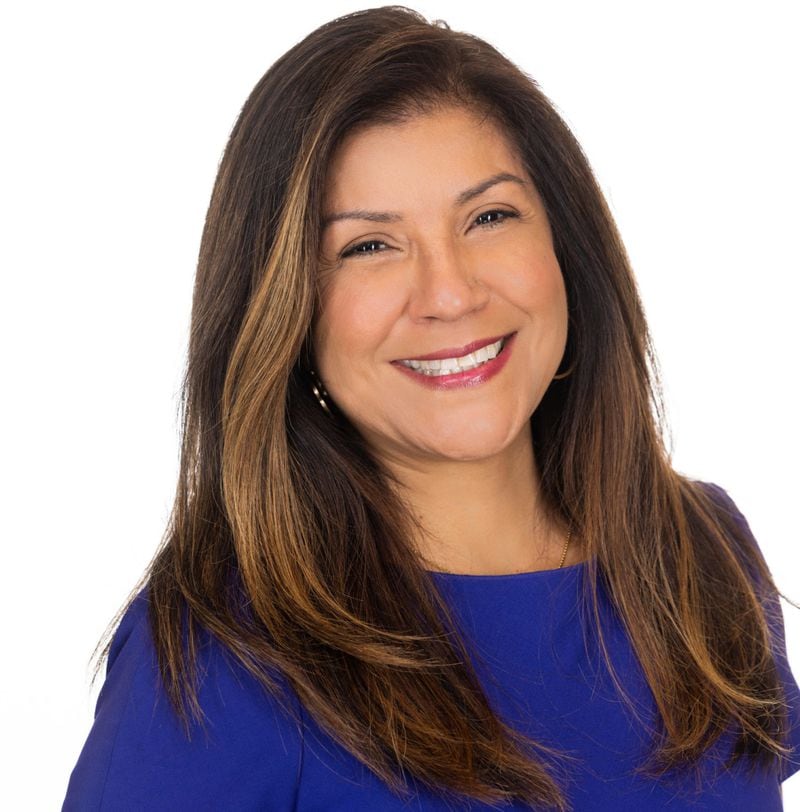In a guest column, Tina Fernandez discusses the pandemic’s toll on Georgia’s high school and college students, citing a weakening path from high school to college. Fernandez is executive director of Achieve Atlanta and a member of the Pathways to Adult Success network.
By Tina Fernandez
The full effect of the COVID-19 pandemic on Georgia’s students may not be known for many years. But already, there are warning signs we would be foolish to ignore.
After a decade of progress in getting more high school students across the graduation stage, the latest data show that progress has slowed or stalled. Georgia’s graduation rate ticked down to 83.8%, the first decline since the state began using the current graduation rate measurement in 2011.
While this drop is not as severe as many feared, and the rate in Atlanta Public Schools actually increased, there are signs the pathway from high school to college is eroding for many students. Financial aid applications, a critical step toward college enrollment, are down. Compared to fall 2019, undergraduate enrollment in Georgia has fallen by 5.8%. That means there are roughly 30,000 fewer college students in Georgia today than just before the pandemic.
Credit: Courtesy
Credit: Courtesy
This data confirms what those of us working with high school and college students already knew to be true — the past year-and-a-half has taken a tremendous toll on Georgia’s students. While young people have shown remarkable resilience during this time, without proper course correction, many students may fall permanently off the path to college and meaningful careers. That should concern anyone invested in Georgia’s economic and educational vitality.
Fortunately, there are promising strategies to expand college access and success across the state. Many of which have already proven successful here in Atlanta. Strategies include encouraging completion of federal financial student aid (FAFSA) forms, helping students find their right college match, and smoothing the transition from high school to higher education.
For one, Georgia should consider making FAFSA completion a requirement for high school graduation. Completion of the form is the strongest predictor of college enrollment. Making it a prerequisite for graduation is a discrete step our state can take in response to the decline in FAFSA applications. Several other states, including Alabama and Florida, have recently adopted or considered “universal FAFSA” policies.
Of course, without careful implementation and adequate supports, simply mandating FAFSA could backfire. Such a policy change would require sufficient planning time for rollout and a robust opt-out plan for students who face barriers to FAFSA completion, such as those without access to parent or guardian financial information, or students who are undocumented.
We also know that college access doesn’t guarantee college success. That’s why students need the support and guidance to find their right college match and fit. That means helping students build a balanced college list that meets their academic, personal and financial needs. Since its launch last year, more than 2,000 Atlanta students have used the ”match & fit list builder” developed through a partnership between Achieve Atlanta and APS. Students across Georgia would benefit from a similar tool.
A less concrete but equally urgent step is to break down the barriers between Georgia’s K-12 and higher education systems. Despite their obvious connection, high schools and postsecondary institutions have long operated in their own siloes, leaving many students left to navigate the transition between the two alone. Without guidance and support, many choose to forgo higher education altogether.
Building stronger, more equitable pathways to college and career success isn’t a task any one institution can solve alone. In fact, there’s a growing Pathways to Adult Success network of schools, nonprofits, and employers across the country dedicated to this cause.
At Achieve Atlanta, where I serve as executive director, we’ve partnered with Atlanta Public Schools and more than a dozen postsecondary institutions and nonprofits to help more students access and succeed in college. The results from more than five years of partnership are clear: the number of APS students completing FAFSA applications and applying to and enrolling in college have all increased in that time.
The pandemic’s impact does not have to undo the educational progress Georgia has made in the last decade. By encouraging FAFSA completion, helping students find their right college match, and smoothing the transition from high school to higher education, we can open pathways to college and career success for all students.








